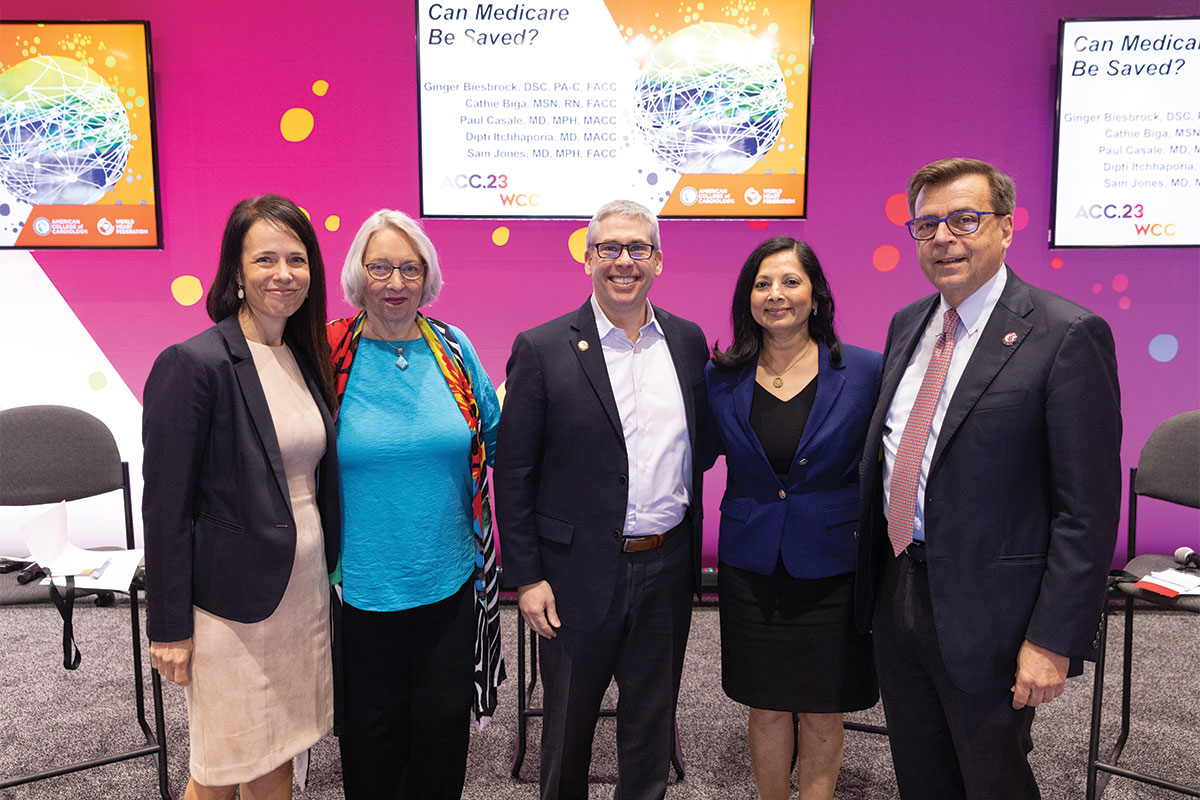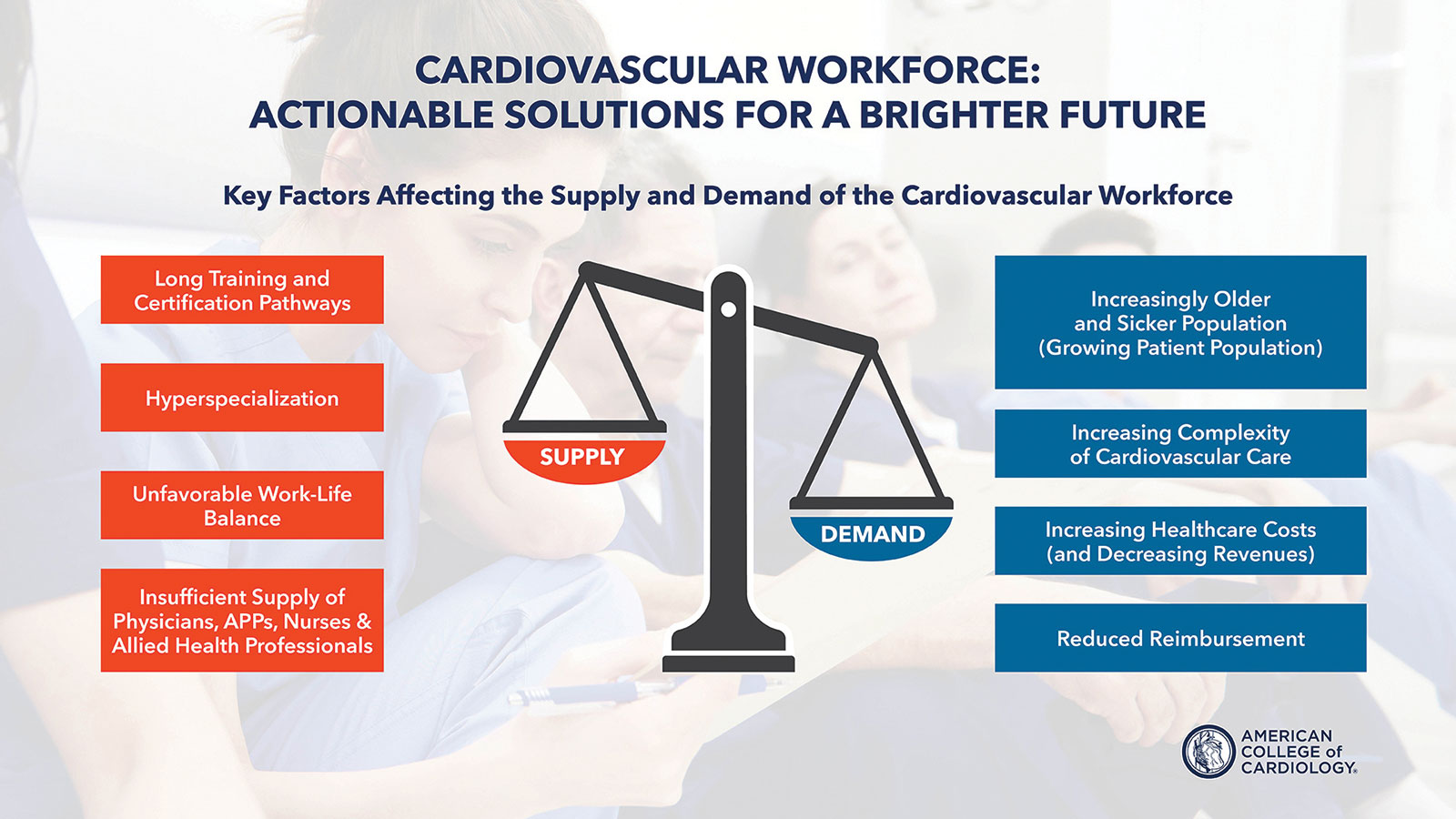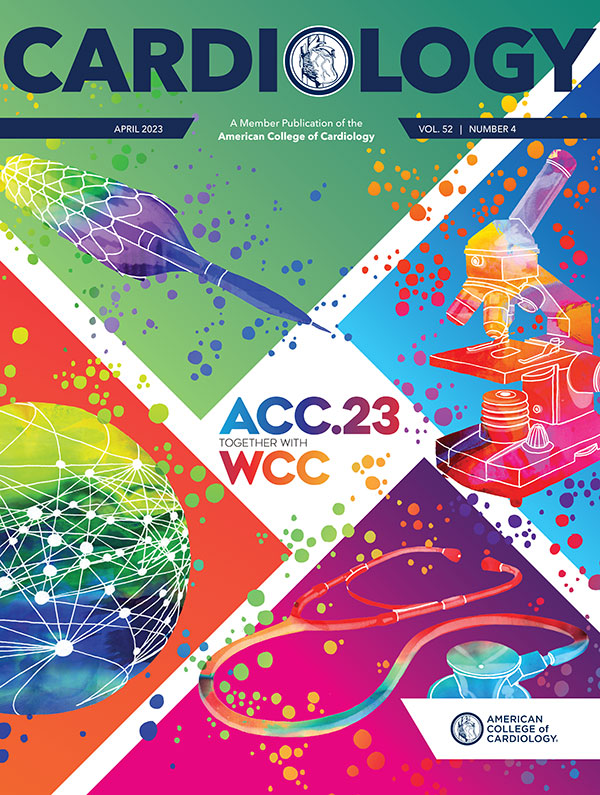Heart of Health Policy
Health Policy Issues Take the Stage in New Orleans
Navigating the CV Workforce Crisis
An ACC.23/WCC session explored findings from the ACC Presidential Task Force charged with identifying potential solutions to today's cardiovascular workforce crisis.
Task Force Chair Thomas M. Maddox, MD, MSc, FACC, moderated the conversation, which looked at key factors affecting workforce supply and demand (see Figure), and included insights from ACC Immediate Past President Edward T. A. Fry, MD, MACC; ACC Chief Innovation Officer Ami B. Bhatt, MD, FACC; Health Affairs Committee Chair William A. Van Decker, MD, FACC; MedAxiom President Jerry G. Blackwell, MD, MBA, FACC; and Julie B. Damp, MD, FACC.
According to the Task Force, proposed steps forward include pursuing changes in training and certification pathways, incentivizing careers in general cardiology, providing well-being resources, promoting team-based care, creating new models and tools that optimize workflow, driving payment reform and incentives alignment, and partnering to better manage cardiovascular disease. Don't miss the June issue of Cardiology for more on this issue.
Can Medicare Be Saved?
Complexities of Medicare Reform were also showcased at ACC.23/WCC. Attendees got a front-row seat to a panel discussion on whether Medicare can be saved, featuring Immediate Past Health Affairs Committee Chair Samuel O. Jones IV, MD, MPH, FACC; ACC Vice President Cathleen Biga, MSN, RN, FACC; Paul N. Casale, MD, MPH, FACC; ACC Past President Dipti Itchhaporia, MD, MACC; and MedAxiom's Ginger K. Biesbrock, PA-C, FACC. The panel explored the "complex case of system reform," obstacles to change and solutions that could be implemented to accelerate the transition from payment for volume to payment for value. Look for ongoing updates and opportunities to take action at ACC.org/Advocacy, and save the dates for MedAxiom's Spring and Fall CV Transforum meetings, as well as ACC's 2023 Legislative Conference later this year.

Does Eliminating Copays Reduce Cardiac Events?

Providing medications for chronic diseases – for example, cholesterol-lowering, blood pressure and diabetes medications – free of charge for three years did not have a significant impact on serious health outcomes associated with those conditions among low-income seniors in Canada, according to results from the ACCESS study presented at ACC.23/WCC.
"Our findings suggest that the current policy in Alberta, Canada, is probably reasonable; even though it leaves people with some costs, they're not overburdensome in this population," said Braden Manns, MD, MSc, the study's senior author. "Most experts in health policy will actually be quite surprised by this. It's a negative trial but still one that we can learn a lot from." He added that further studies could help elucidate whether a similar intervention might have more of an impact among other groups of people, such as those who are uninsured or those living in the U.S., where the average person spends $1,500 per year on prescription drugs. Click here for details.
Clinical Topics: Cardiovascular Care Team, Diabetes and Cardiometabolic Disease, Heart Failure and Cardiomyopathies, Vascular Medicine, Atherosclerotic Disease (CAD/PAD), Acute Heart Failure
Keywords: ACC Publications, Cardiology Magazine, ACC Annual Scientific Session, ACC23, ACC Advocacy, Motivation, Cardiovascular Diseases, Workflow, Medicare, Cardiology, Workforce, Certification, Physicians, Nurses, Prescription Drugs, Quality of Life, Coronary Artery Disease, Aneurysm, Medically Uninsured, Risk Factors, Myocardial Infarction, Heart Failure, Diabetes Mellitus, Metabolic Syndrome, Chronic Disease, Renal Insufficiency, Chronic, Hospitalization, Prescriptions, Policy, Health Policy
< Back to Listings



